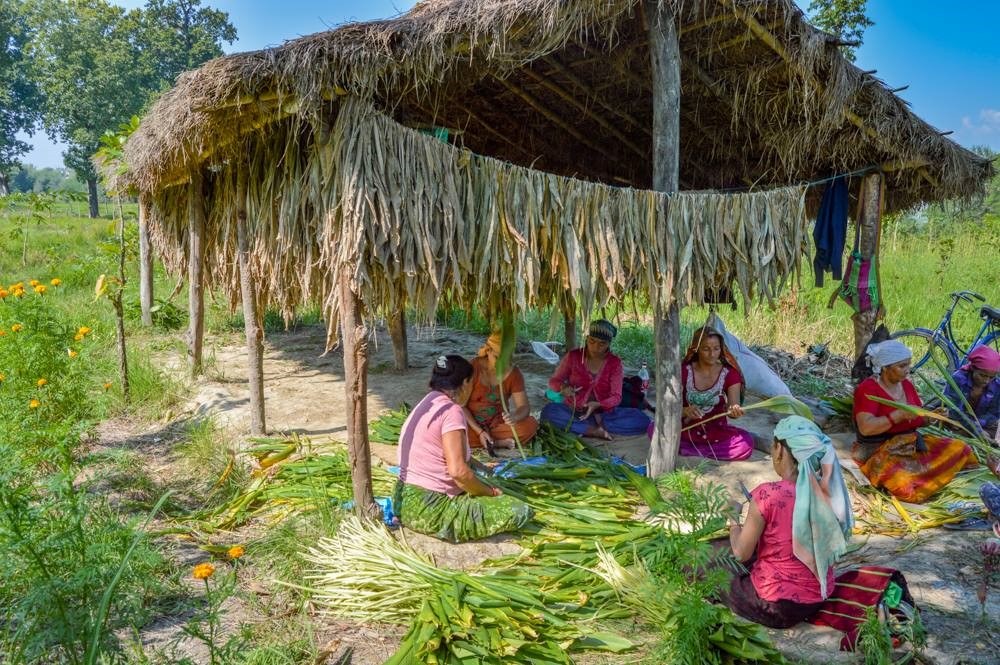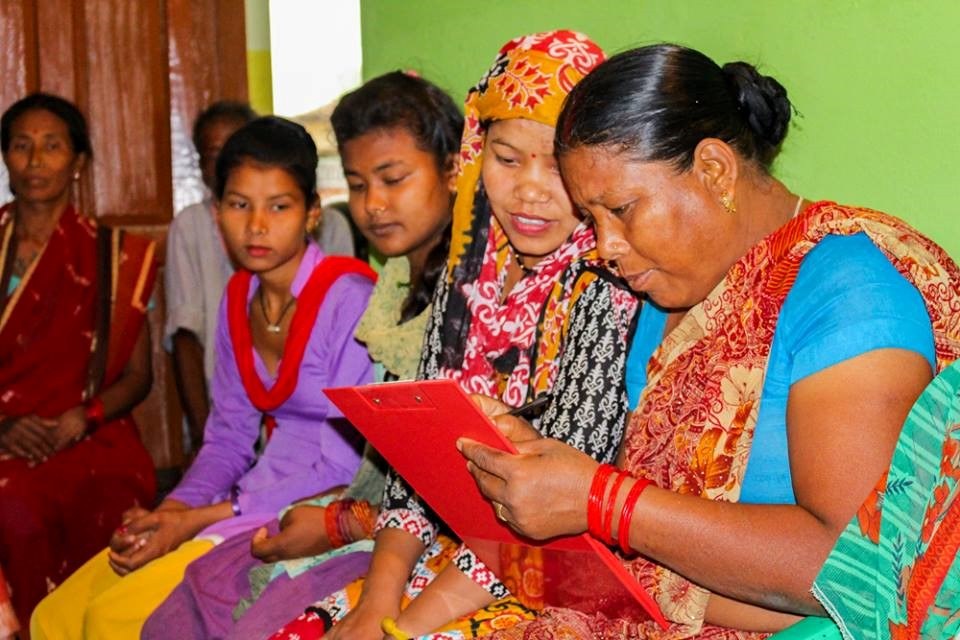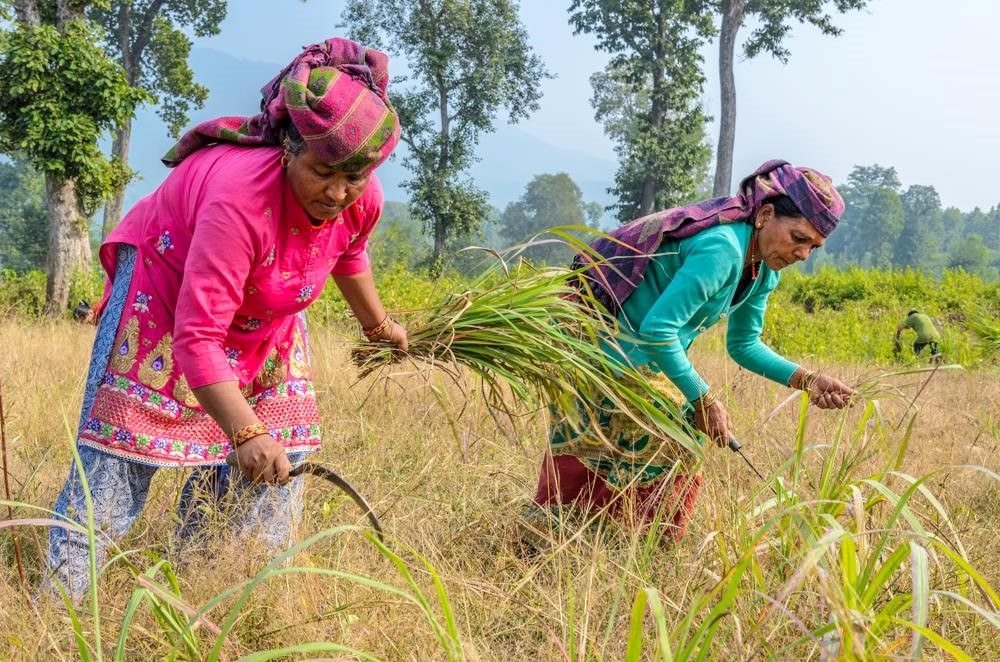Nordic Climate Facility (NCF) project is reducing vulnerability to climate change in rural Nepal by supporting local business development based on forest-land-management
Through participatory agroforestry initiatives, the project benefitted 5,000 households constituting vulnerable indigenous and marginalised people. The project was a success as it revitalised groups in 10 community forests in Nawalparasi district. The main purpose of the project was to develop forest-based women enterprises and to use forest resources in a sustainable way leading to climate resilience and economic development.
Climate change is already adversely affecting forests and different production systems in Nepal that the most vulnerable communities heavily depend on. Climate change impacts such as extreme weather changes, forest fires, erratic rainfall and flash floods have had a massive impact on the livelihoods of the local forest user groups in Nawalparasi district, Nepal. Therefore, there was a high need for a project to increase the climate resilience as the community forests in Nawalparasi were prone to flash floods during every monsoon season and were reported with the highest occurrence of forest disturbances such as grazing, forest fire, landslide and deforestation. The communities are in general highly dependent on forest resources for their daily livelihoods. Women spent hours collecting for fuel wood and fodder in the forest. While women played a focused role in daily use, they had remained excluded from access to services and economic opportunities and had been largely under-represented in decision-making.
The project aimed to empower the women while mitigating and adapting to climate change. In order to promote forest restoration and strengthen the capacity of the women, women groups were formed and strengthened into institutionally and economically independent, officially registered groups. These groups were trained in cultivation and distillation of medicinal aromatic plants in an agroforestry system, and business development skills. The process enabled the production and sale of essential oils and cash crops that ensured women’s economic freedom. In addition, a total of 185 hectares inside the community forest was brought into sustainable use.
“We all knew forest provides with oxygen and good environment but little did we do to conserve the forest, we were only taking out fodder, firewood without realizing that this abundant resource will decrease one day. This project has shown us the way; we are planting more trees, keeping livestock out of the forest, guarding the forest and at the same time generating income without destroying it but by bringing into use the empty lands inside the forest. Some of us have also installed biogas plants and even from that we can make money. We are now members of independent women groups. We can now talk with people and local authorities, have secured our rights and are very happy,” say Bimala Sinjali and Chandra Kumari GC, members of Women Group of Sitapokhari Community Forest and Daunne Community Forest, Nawalparasi.
During the project implementation, forest nurseries were established and maintained that contributed to the restoration of 32 hectares of degraded land. An agroforestry system was established, through which trees and medicinal aromatic plants were introduced. 110 households installed biogas units that reduced GHG emissions while providing them with fertilisers. In addition, the planting of fodder species increased households’ income sources as cows were producing milk also during winter season. These actions further enhanced the forest ecosystem and livelihoods while mitigating and adapting to climate change and its impacts.
The long-term sustainability of the project looks promising. Local women groups are linked with market and economic returns from the products are ensured by contracts. Economic incentives have motivated women groups to replicate similar activities in new areas and to test new ideas. This existing institutional arrangement within the group has enabled the continuation of the activities even after project. The nurseries are now able to function independently with a target of 50,000 saplings per year. In addition, the high-value forest and fodder trees will act as a carbon sink and also provides economic returns by sustainable use of natural resources.
The project was led by Danish Forestry Extension in cooperation with Wildlife Conservation Nepal, WCN (Nepal), Himalayan Bio Trade Pvt. Ltd, HBTL (Nepal), and BioSynergy (Denmark) commenced in 2017 and finished in 2020.
Read more about the results in the project completion report.




 The Nordic Climate Facility (NCF) is a challenge fund that finances innovative climate change projects.
The Nordic Climate Facility (NCF) is a challenge fund that finances innovative climate change projects.
